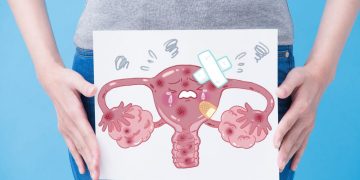Proton Pump Inhibitor is a common drug that is usually prescribed for a person with acid reflux and other gastric problems. It is one of the most common drug type used by many across the globe for the condition. But recent studies reveals some shocking information about PPIs which might just make you think twice before going ahead with using it.
What is Acid reflux?
The food we eat enters our stomach through the esophagus, the lower part of the esophagus that connects stomach is called “oesophageal sphincter,” this valve opens up when the food enters the stomach and closes afterward. Our stomach then releases digestive fluids and stomach acids to digest the food we eat. During this time, if the oesophageal sphincter opens and closes frequently due to some reason, then the acid from the stomach will reach the esophagus causing discomfort. The symptoms of acid reflux include burning sensation in the throat region, heartburn, acidic taste in the mouth, bad breath, vomiting, nausea, mild headache, and bloating.
How PPI helps with Acid reflux?
Proton pump inhibitors will stop certain enzymes in the stomach which are responsible for acid production, in this process it reduces nearly 90 percent of the acid production in the stomach. When this occurs, this reduces the symptoms of acid reflux to a higher degree making the user of the drug feel better temporarily.
Are PPIs only used for Acid reflux?
No, it is also used for other stomach conditions like gastric ulcers, bacterial infections in the stomach, Barrett’s esophagus, etc..
Everything seems fine, where is the problem?
Occasional or rare usage of PPIs may not be dangerous to your health, but the problem starts when you use it on a regular basis. Recent studies reveal that over usage, or long-term use of PPIs could lead to severe complications, and they even reveal sometimes it could also lay down the foundation for possible cancer. In a medical study conducted by Washington University School of Medicine which involved nearly 250,000 records of people using PPIs revealed that this drug use was associated with 25 percent heightened the risk of death from all causes which includes cancer, kidney failures, heart diseases, etc.
Usage of PPIs is found to trigger mental issues as well. A cohort study in Germany which involved over 3000 individuals aged 75 and above significantly increased the risk of developing Dementia and Alzheimer’s up on PPI usage. In a separate Japanese study which included 175 people revealed that individuals who do not positively respond to PPI drugs undergo mental health disorders, insomnia, and increased risk for many psychological problems. On the contrary, those who responded well to the PPI therapy did not show any signs of mental distress.
Link between Vitamin B-12 deficiency and PPI
In a study conducted in the US, based on medical records of 25,000 individuals revealed that long-term use of PPIs leads to Vitamin B-12 deficiency. So why is that? PPI reduce the secretion of stomach acid to a mere 10 percent, but our body needs stomach acid to bring out Vitamin B-12 from the protein present in our food, thus making the person who regularly use PPI to become Vitamin B-12 deficient. NHS now recommends the users of PPIs to be checked for vitamin B12 deficiency.
Deficiency of this vitamin can lead to psychological issues, fatigue, depression, and stress.
How to fight this?
Regular users of PPIs can reduce their need for the drug through some simple lifestyle changes like
- Giving up smoking and drinking habits
- Maintaining healthy body weight
- Regular exercise
- Converting three big meals a day to smaller six meals with regular breaks.
What are the foods that trigger Acid Reflux?
Chocolate is found to be the biggest culprit for Acid reflux in a small study that involved seven participants in the University of Michigan. The study found that all the seven participants developed acid reflux because of chocolate intake. Reason being, chocolates triggers high levels of serotonin in the intestines, which made the lower oesophageal sphincter to open a little bit which made way for acid from the stomach to enter the esophagus.
Other foods that are found to trigger the problem includes spicy foods, fat-rich foods, oily foods, pizza, hot dogs, bread, doughnuts, coffee, rice cakes, ramen noodles, and deep-fried foods.








